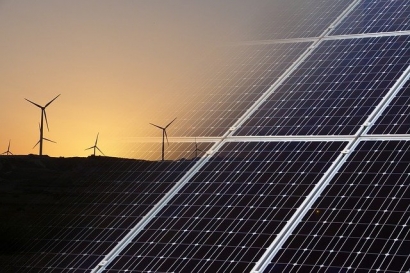
Generally, there are five types of stakeholders:
Central Govt: Basically, policy formulation is initiated here. MNRE decides the road map for renewable energy implementation. There are several organizations to support this policy initiative. One of them is the Solar Corporation of India. Others are NTPC, NHPC, BHEL etc.
Even though initially NTPC was entrusted with setting up of super thermal power stations but looking into the advantages of large scale power generation by Solar energy, they have also implemented the plan of solar ultra mega power plants. Similar is the case for BHEL, which was into the manufacture of steam generators and turbines initially, but has recently taken up manufacturing of Solar panels. NHPC mandate was to set hydropower stations, and they also have taken up the setting up of Solar based power plants.
As Government has limited financial resources, it has come out with a novel idea of private investments. Why then are private agencies interested in implementing such systems with their own finances? The logic is that Government would purchase the power generated by private agencies on a long term basis, also known as Power Purchase Agreement (PPA).
Typically, PPA is entered into between agency and Government for 25 years. While working out power tariffs, this period is taken into account. As of date, Solar PV power plant components have become cheaper while tariff has come down as low as Rs 2 per unit. This cost is much cheaper than the tariff based on thermal power plants, which can be as high as Rs 6 per unit and above. Government should, however, take care to honor such agreements so that the agencies are not disappointed.
Even though it has been received well in most cases, contracts have been cancelled on the pretext that the tariff was high in few scenarios. Nevertheless, this is unfair after both parties sign the agreement. These cases were published in newspapers as well. As long as tariffs are lower than the tariff based on thermal power plants, the Government and the agency should not make such agreements void.
State Govt: They can take a cue from policies of the Central Government and set up Solar Parks where large scale Solar based power stations can be set up, especially on barren lands which are otherwise unusable. They can also encourage citizens to install rooftop solar plants by giving them attractive incentives. Already there is progress on this front. Speeding up this on a war footing will result in faster goal achievement.
Manufacturers: Several factors come into play that shows slow progress on the part of some manufacturers. For example, companies have invested thousands of crores in high fuel use appliances such as vehicles. Most people do not want to change from the current time tested devices. They wait for others to use the new technology and arrive at a decision based on other people’s experiences.
Even the mechanics instill fear in customers’ minds by telling them that they will not get on-road support in case of breakdown if they buy an Electric Vehicle. Hearing such comments, customers wish to drag on as long as possible to exploit all their existing resources and maximize return on their investment caring less for increasing pollution levels.
A classic example is the invention of the LCD TV which was developed early. Still, the implementation was delayed so that a significant return on their investment could be achieved with older cathode ray tube technology. That being said, looking into the bright future, many of the big business houses like Adani, Reliance and few others have jumped on the bandwagon by investing a tremendous amount of money in the manufacture of Solar Panels, Inverters etc.
Investors: These are financial institutions that invest massive amounts for setting up such mega plants with agencies who enter into PPA agreements with the State Government.
Citizens: Being environmentally ethical, it’s high time that people start taking climate change due to global warming seriously. One way to be a catalyst for protecting Earth’s natural resources is to utilize those that come in abundance and are naturally non-exhaustible.
Switching over to renewable energy sources like solar and wind power wherever feasible and adopting Electrical mobility while abandoning fuel-based vehicles can be the first step towards becoming responsible citizens. Moreover, they can also take advantage of Government incentives and create a safe environment for future generations to take over.
A fraction of billions of dollar reserves available with the Government can be used to benefit the BPL families to provide them with the means for a sustainable livelihood by installing a community-based Solar Power Plant. More incentives should be offered to them to adopt these environment-friendly systems as they are the people at the last mile with meagre resources.
About the author: Challapalli Narayan Rao, former scientist Nuclear power Corp.; former Project engineer, National Dairy Development Board; former Senior Technical Director, National Informatics Centre; former advisor, ASA NGO; Director Mitray Solar Tech LLP; currently acting as an IT consultant , MP Pollution control board

